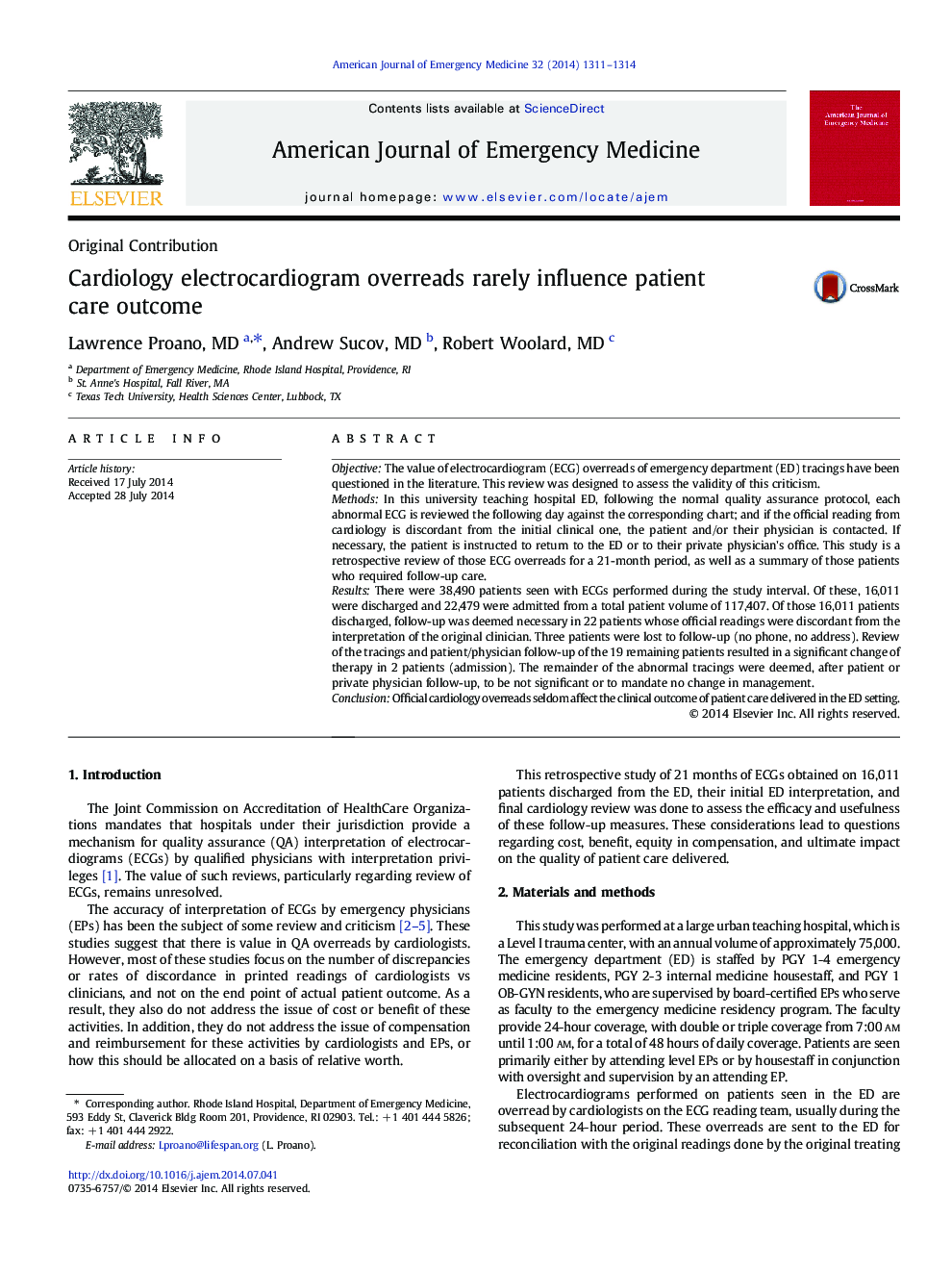| Article ID | Journal | Published Year | Pages | File Type |
|---|---|---|---|---|
| 3223746 | The American Journal of Emergency Medicine | 2014 | 4 Pages |
ObjectiveThe value of electrocardiogram (ECG) overreads of emergency department (ED) tracings have been questioned in the literature. This review was designed to assess the validity of this criticism.MethodsIn this university teaching hospital ED, following the normal quality assurance protocol, each abnormal ECG is reviewed the following day against the corresponding chart; and if the official reading from cardiology is discordant from the initial clinical one, the patient and/or their physician is contacted. If necessary, the patient is instructed to return to the ED or to their private physician's office. This study is a retrospective review of those ECG overreads for a 21-month period, as well as a summary of those patients who required follow-up care.ResultsThere were 38,490 patients seen with ECGs performed during the study interval. Of these, 16,011 were discharged and 22,479 were admitted from a total patient volume of 117,407. Of those 16,011 patients discharged, follow-up was deemed necessary in 22 patients whose official readings were discordant from the interpretation of the original clinician. Three patients were lost to follow-up (no phone, no address). Review of the tracings and patient/physician follow-up of the 19 remaining patients resulted in a significant change of therapy in 2 patients (admission). The remainder of the abnormal tracings were deemed, after patient or private physician follow-up, to be not significant or to mandate no change in management.ConclusionOfficial cardiology overreads seldom affect the clinical outcome of patient care delivered in the ED setting.
